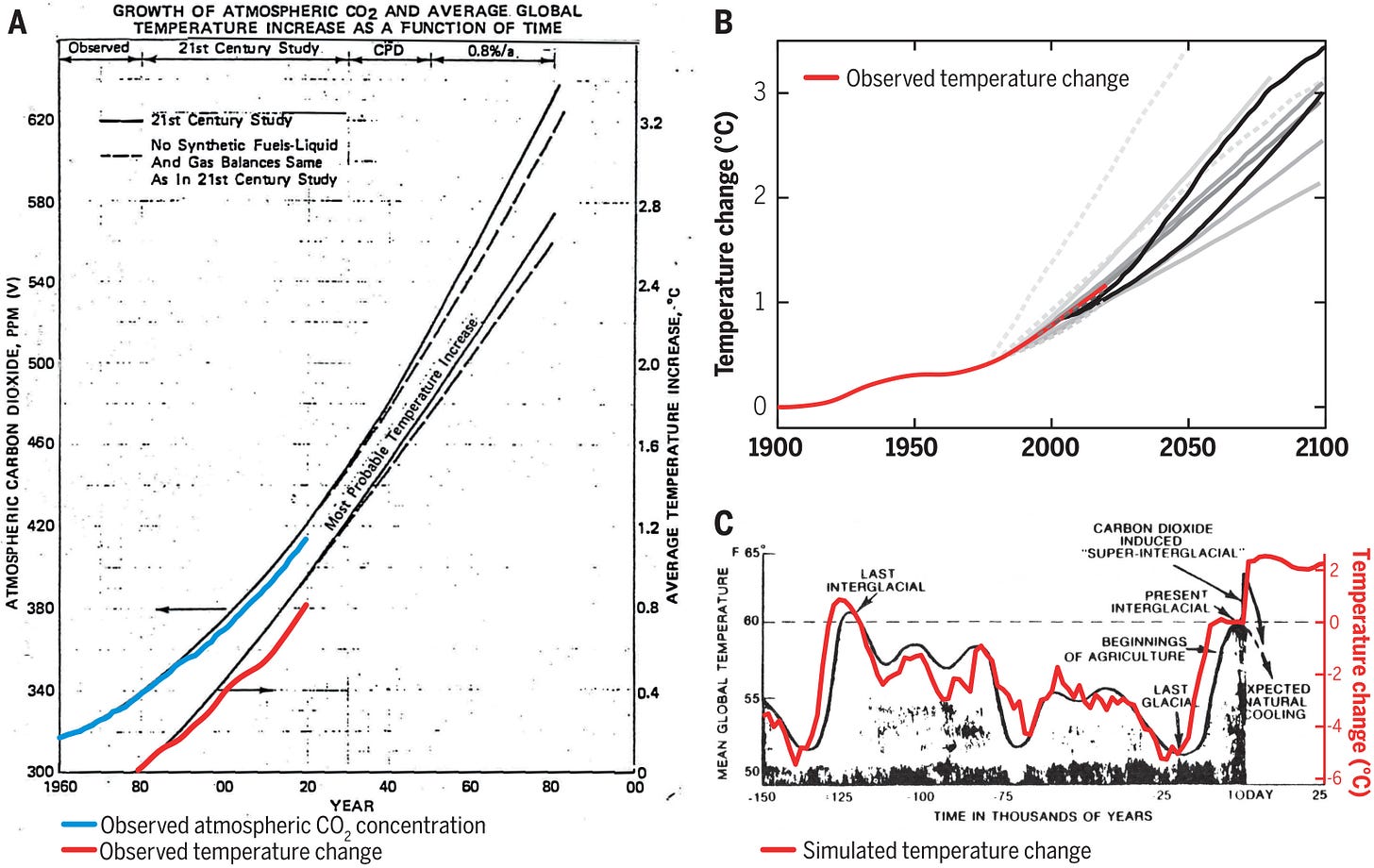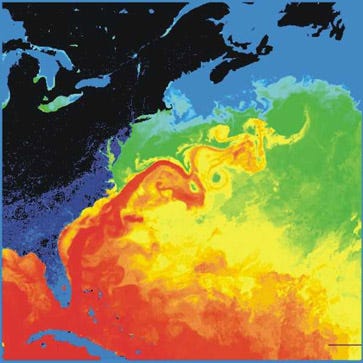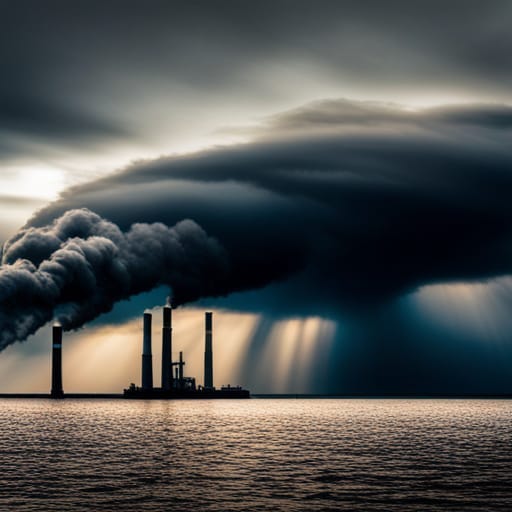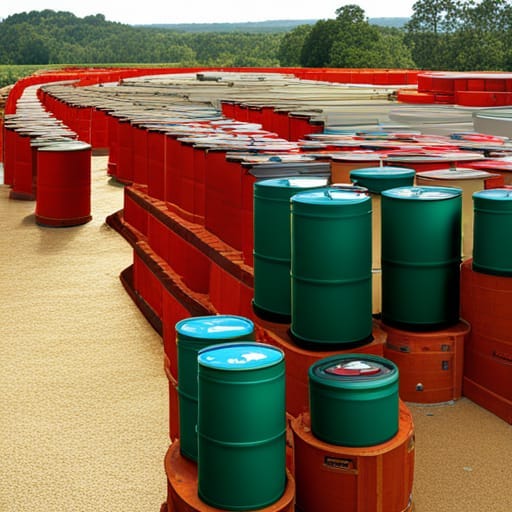Headlines from a Warming World no.3
Exclude fossil fuels companies from climate negotiations, Arctic & Antarctic Sea Ice Lowest on Record, Gulf Stream Weakening Confirmed, and Exxon (again)
Oil and Gas Companies should be excluded from climate negotiations
Christiana Figueres has been an optimist on climate. This optimism helped her rebuild the global climate change negotiating process, leading to the 2015 Paris Agreement, a remarkable achievement. I admire her work on climate; however, I have always disagreed with her on the issue of fossil fuel companies participating in climate policymaking discussions.
Figueres for years argued that oil and gas companies should have a seat at the table in climate policymaking discussions. However, last June she wrote an op-ed in Al Jazeera entitled, “I thought fossil fuel firms could change. I was wrong.”
I am pleased she changed her mind. There have been lawsuits and allegations against some of the world’s largest oil companies for misleading the public about the damage their products cause and downplaying the risks associated with fossil fuels. California, for instance, has filed a lawsuit against five major oil companies, accusing them of lying to the public about the damage their products cause.
For this reason alone, these companies should be excluded from COP28. As they continue lobbying and blocking climate action, they should be excluded from all current and future climate discussions.
Same old, same old
After years of denial, Exxon finally acknowledged in 2006 that burning fossil fuels causes climate change. But behind closed doors, Exxon took a very different strategy.
According to internal Exxon documents examined by The Wall Street Journal and interviews with former executives, the company's executives strategised on how to downplay concerns about global warming, and they tried to muddle scientific findings that might harm its oil and gas business.
Since the 1970s, Exxon's climate modellers have predicted global warming using computer simulations and data analysis. The company was aware that the use of fossil fuels could lead to global warming with “dramatic environmental effects before the year 2050.”

However, despite their own scientific evidence, Exxon publicly dismissed the reality and urgency of climate change and funded groups that spread misinformation and doubt about the issue. This is a clear example of how corporate interests can undermine scientific integrity and public trust.
Arctic and Antarctic Sea Ice reached minimum extent for 2023
2023 observed the 6th lowest annual minimum Arctic Sea ice extent in the nearly 45-year satellite record. NSIDC scientists stress that the Arctic Sea ice extent number is preliminary—continued melt conditions could still push the ice extent lower.

As if that weren't enough, the extent of the Antarctic Sea Ice has likely peaked for the year. The 2023 maximum is the lowest in the 45-year satellite record. It is more than one million square kilometers (386,000 square miles) below the previous record low maximum extent, set in 1986.
Less sea ice means that more of the ocean is exposed to the sun's energy, which further warms the ocean and accelerates ice loss.
Gulf Stream Weakening Confirmed
The Gulf Stream is a small part of something called the ‘thermohaline circulation’ or ‘Atlantic Meridional Overturning Circulation’. It is a warm ocean current that originates in the Gulf of Mexico and flows northward along the eastern coast of the United States. The Golf Stream plays a crucial role in regulating the climate by transporting warm water and heat from the tropics to higher latitudes, affecting both local and global weather patterns. Additionally, the Gulf Stream acts as a major migratory route for marine species, contributing to the rich biodiversity found in its waters.
A new study synthesising Gulf Stream observations from the Florida Straits near Miami found that transport has slowed by about 4% in the past 40 years, providing the first conclusive evidence of significant change in the Gulf Stream.
“We conclude with a high degree of confidence that Gulf Stream transport has indeed slowed by about 4% in the past 40 years, the first conclusive, unambiguous observational evidence that this ocean current has undergone significant change in the recent past,” states the journal paper.

Gordon Brown’s bold idea: a windfall levy on the richest oil states to tackle the climate crisis and poverty
Gordon Brown, the former UK prime minister, has proposed a global windfall levy on the richest oil states to help poor countries deal with the climate crisis. He argues that petrostates like Saudi Arabia, the UAE, Qatar, and Norway have experienced significant increases in their oil and gas revenues in the last two years, while the global south has suffered from rising energy prices and extreme weather events. Brown suggests that a 3% tax on the oil and gas export earnings of these countries would generate $25 billion a year, which could be used to fund climate adaptation, mitigation measures, poverty reduction, and education initiatives in the developing world.
Brown's proposal comes ahead of the COP28 summit in Dubai in November, where world leaders are expected to discuss raising $100 billion a year to help poor countries cope with the climate crisis. However, this pledge has been repeatedly delayed and underfunded, and developing countries are losing trust in the rich nations' commitment to climate justice. Brown hopes that his plan will prevent a stalemate and potential breakdown at COP28 and show solidarity and leadership from the petrostates, which he believes have a duty to contribute to the global common good.
Just a reminder that the upcoming COP28 summit will be chaired by Sultan Al Jaber, who is the head of Abu Dhabi National Oil Company (ADNOC), one of the major producers and exporters of fossil fuels. It is worth noting that ADNOC has plans to expand its oil and gas output in the near future. Naturally, this conflicts with the COP28 summit's objectives, which are to accelerate the global transition to a low-carbon economy and limit the rise of global temperatures to 1.5°C above pre-industrial levels.
Which brings us back to the beginning of this newsletter. Oil and gas companies and their executives should NOT have a seat at the table in climate policymaking discussions, current and future.





